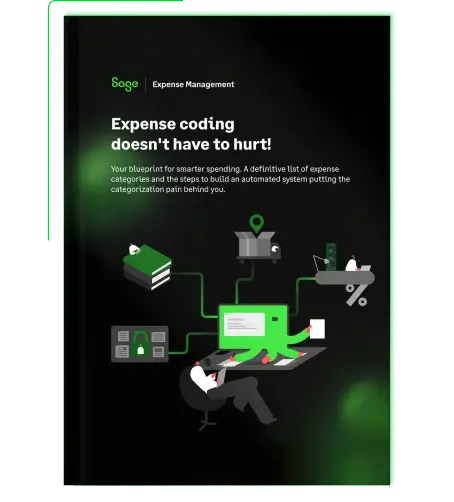 4.6/51670+ reviews
4.6/51670+ reviewsToll expenses, fees paid for using highways, bridges, tunnels, and ferries are common for businesses whose employees or owners travel by vehicle for work-related purposes. For accountants and Small to Medium-sized Business (SMB) owners, understanding how to categorize and deduct these tolls is essential for accurate expense management and tax reporting.
This guide will cover the toll expenses category, important considerations for their classification, common examples, the tax implications as per IRS guidelines, and how Sage Expense Management can assist in automating the tracking of these transportation costs.
Toll expenses are costs incurred for the right to travel on a specific roadway, bridge, tunnel, or waterway that requires a fee. For business accounting purposes, these expenses are generally considered part of the operational costs related to transportation or travel. They can be categorized as:
Regardless of the specific account name, tolls paid for legitimate business purposes are recognized as a cost of conducting business.
The primary factor for deductibility is that the toll must have been incurred while on a trip directly related to conducting your trade or business. Personal trips, even if made in a company vehicle, do not qualify.
Tolls paid during your regular commute between your home and your main or regular place of work are considered personal commuting expenses and are typically not deductible.
The way you deduct other vehicle expenses impacts how you handle tolls:
If your business reimburses employees for tolls incurred during business travel, these reimbursements should be handled under an accountable plan to be non-taxable to the employee and deductible by the business. An accountable plan requires substantiation of expenses and return of any excess allowance.
Proper documentation is key. While obtaining a receipt for every individual cash toll can be impractical, good records are still necessary. Keep a log of business trips showing the date, destination, mileage, and business purpose. Statements from electronic toll collection systems (like E-ZPass, FasTrak, or SunPass) or credit card statements itemizing toll charges are excellent supporting documents. For transportation expenses where a receipt isn't readily available, other evidence can be sufficient if it proves the elements of the expense.
Deductible business-related toll expenses can include:
Tolls incurred for ordinary and necessary business travel or transportation are deductible business expenses.
Tolls paid for personal trips, including the daily commute between your home and your regular place of work, are not deductible.
You must be able to prove that the tolls were business-related. The IRS requires records that substantiate the amount, date, place (e.g., toll road name or location), and the business purpose of the trip for which the toll was paid. Electronic toll statements often provide excellent documentation.
Manually tracking numerous small toll charges, collecting receipts or statements, and allocating them to business trips can be a significant administrative task. Sage Expense Management simplifies and automates this:
If tolls are paid using a linked corporate credit card or a business card linked to an electronic toll transponder account, we capture these transactions automatically as they occur, providing an immediate record.
Sage Expense Management can be configured to automatically categorize toll transactions to the appropriate expense account (e.g., Tolls, Travel Expenses, or Vehicle Operating Costs), reducing manual coding errors.
If toll expenses are incurred for specific client visits or projects, we enable users to allocate these costs accordingly, providing better insights for project costing or client billing where applicable.
We help match toll transactions from card feeds with any submitted documentation, streamlining the reconciliation process.
We offer robust, two-way integrations with leading accounting software such as QuickBooks Online, QuickBooks Desktop, Xero, NetSuite, and Sage Intacct. This ensures that accurately categorized and documented toll expenses are automatically synced to your general ledger, keeping your financial records up-to-date and saving significant manual data entry.
By leveraging Sage Expense Management, businesses can ensure that toll expenses are accurately captured, documented, and reported with minimal effort, enhancing compliance and providing clear visibility into transportation costs.





